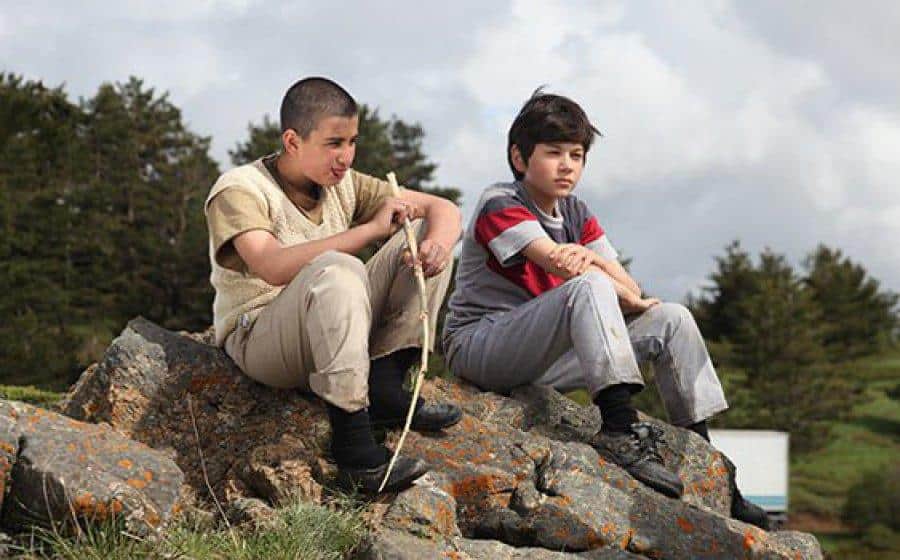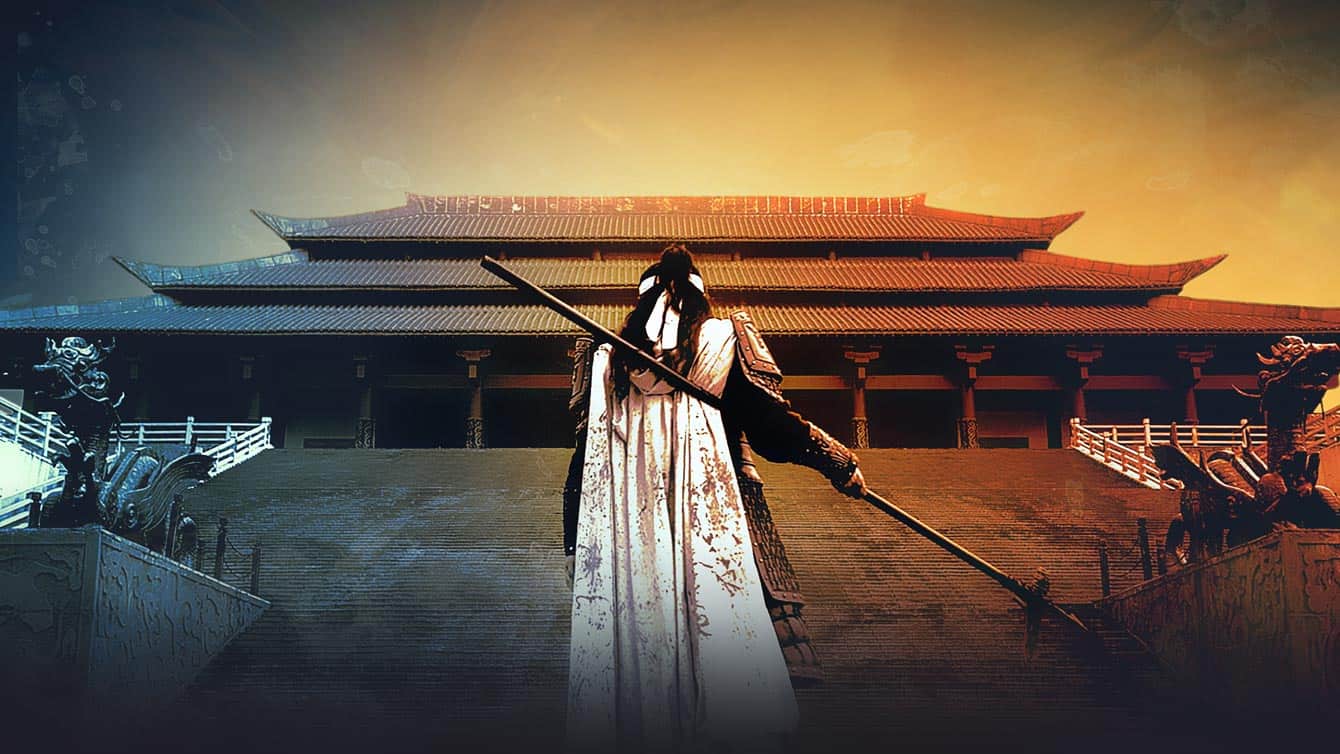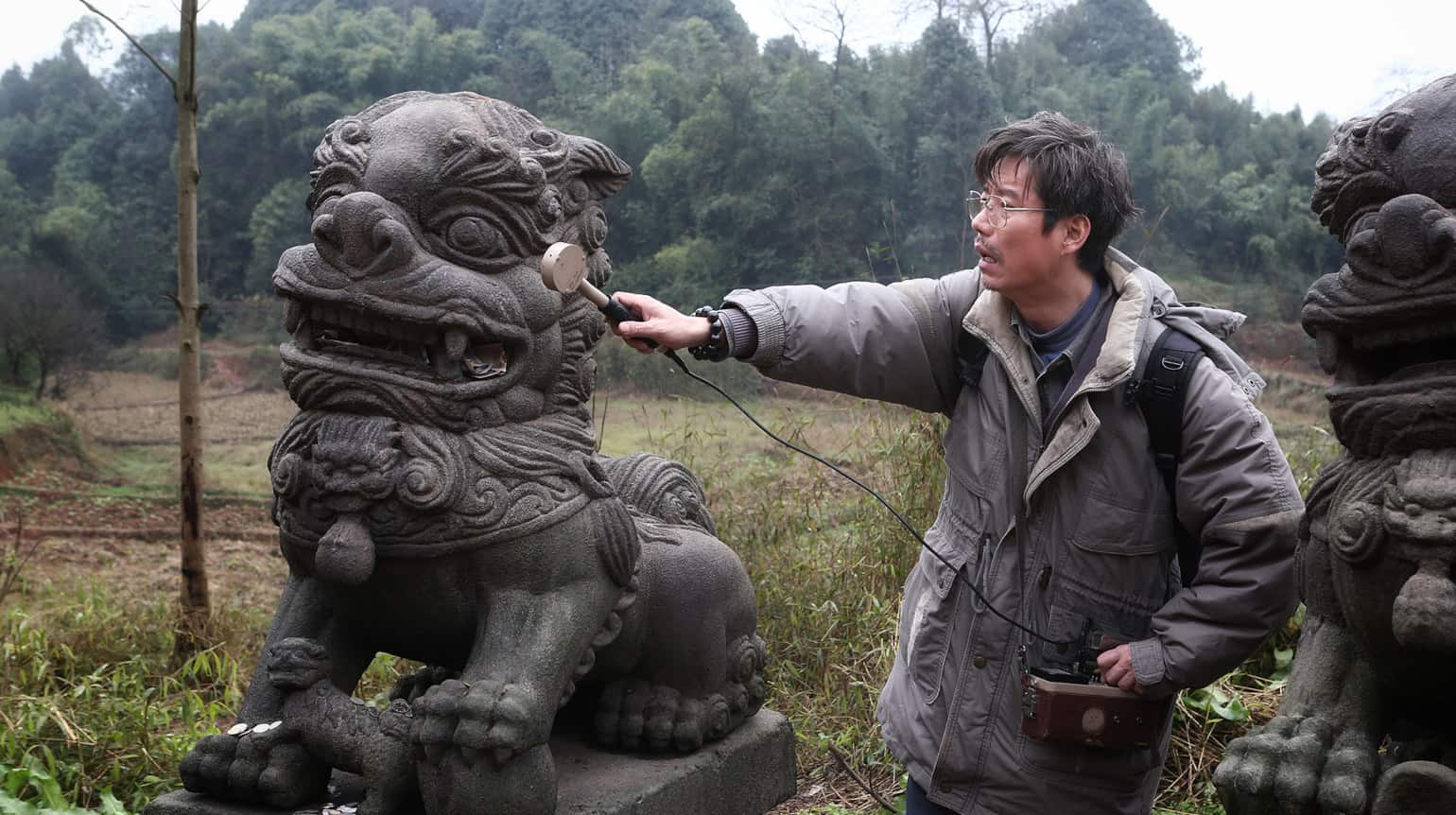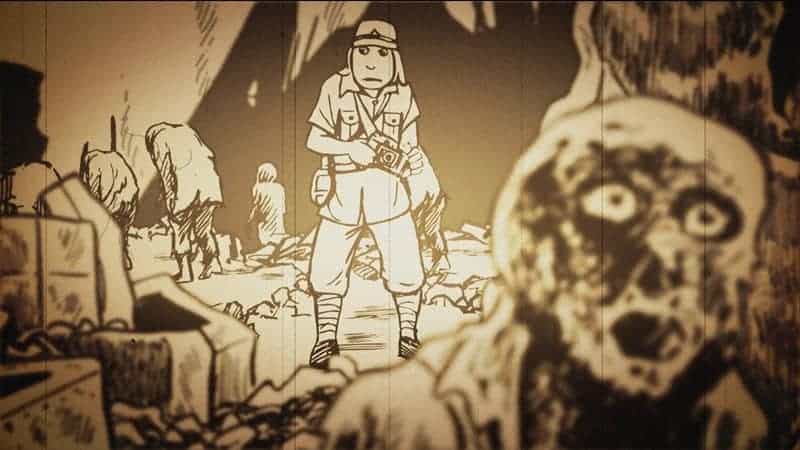Movies with children protagonists have always been a vehicle for a more “tender” way of commenting on social, political and philosophical subjects and Uyghur director A. Uygur Ozturk does exactly that in “White Whale”, in a film though, that is much more than just a children's movie.
The screening of White Whale and the subsequent conversation with the director was co-organised by CCDC Artspace 碧波押 – Green Wave Art Platform, Anthropocene Studies, Hong Kong Baptist University, and Department of Film Studies, King's College London.
The story takes place in the 80s, and revolves around Ali, a young boy whose father died years ago in a ship accident. Through his mother's reading, he discovers “Moby Dick”, and makes a subconscious connection with his father that, later on, shapes his life in ways he could have not anticipated. Alas, his mother also passes away a bit later, and Ali ends up living with his grandfather, Huseyin, in the mountains of Anatolia, in a setting much different from the urban one he was used to. The cultural and generation gap with this grandfather is only the beginning, since Ali finds himself subjected to extreme bullying by Vahap, the local rascal/bully and his “gang”. Soon, however, it is revealed that Vahap's behaviour is a reaction to his father's brutal ways, and after a night when Burhan leaves his son beaten and tied up on a tree in the village, Ali decides to help him escape, thus initiating a surprising but also intense friendship. The boys start hanging out together, having fun in the fields around the village, but once more, tragedy hits Ali, who has an accident that leaves him stranded in bed. Vahap, initially from a sense of guilt but eventually due to a sense of dedication, decides to help his friend finish “Moby Dick”, the book his mother never got to, but his effort are hurdled in ways he could have not anticipated.

A. Uygur Ozturk uses the story of two children, with the person in focus changing midway, from Ali to Vahap, in order to make a plethora of comments. The life in the poor rural areas of Anatolia during the 80s is a central one, with Ozturk highlighting both the difficulties the inhabitants face, but also the sense of community and comradeship that characterized the majority of them, along with the beauties of the area. This last part is where the cinematography of the film finds its apogee, with the scenes in the fields and the poor but impressively looking interiors due to the carpets and tapestries, being the most memorable, visually, aspects of the movie.
The concept of friendship and the ways it can appear in the most unexpected moments is another central theme, which also extends to the lack of parenthood both boys experience (Ali due to his parents' death and Vahap due to his father harsh behavior and his mother's inability to react) that eventually emerges as one of the things that joins them. How far a good deed can go emerges as another concept, with Ali's initial good deed resulting in having such a good and dedicated friend as Vahap, essentially change the latter significantly, although Ozturk takes care of also showing that “boys will be boys” through a number of hilarious scenes, that also add much to the entertainment the movie offers.
Also of excellence is the way the director connects that narrative with the main motifs of “Moby Dick” through the friendship of the two boys, with their interactions and particularly Ali's life having a clear parallel with the concepts of fate against free will, death, duty in friendship, that are also dominant in the book.
Ozturk also manages to extract quite good performances from the two boys, Kaan Urkmez as Ali and Efe Karaman as Vahap being quite convincing, and highlighting both their differences and the things that bring them together in the best way. Umut Karadag as Burhan also stands out as the villain in the film, in a performance that is shockingly powerful.
At the same time, however, there are a number of issues with the film. Cenk Erdogan's music is beautiful, but is somewhat monotonous and the extensive use throughout the movie ends up being somewhat tiring after a fashion, particularly since it is always present in the slightly excessive number of sequences of Vahap running. Furthermore, the way the story progresses, particularly for Ali, becomes quite melodramatic after a point, since there are too many tragedies involved, while the lack of a catharsis intensifies this element even more.
In the end however, the beauty and quite rich context of “White Whale”, allow the movie to rise above any shortcomings, and emerge as a rather interesting and joyful spectacle.















